The "Pentagon's new map" recast as USMC's "arc of instability"
 Wednesday, February 11, 2015 at 5:43PM
Wednesday, February 11, 2015 at 5:43PM 
 Wednesday, February 11, 2015 at 5:43PM
Wednesday, February 11, 2015 at 5:43PM  Friday, April 12, 2013 at 8:43AM
Friday, April 12, 2013 at 8:43AM I've come to the decision that I no longer wish to blog on a daily (okay, "weekdaily") basis, and since I have the option of going to Battleland (thanks to Mark Thompson) for the occasional post as I see fit, I'm going to shut down this aspect of my site.
I've been blogging here since the spring of 2004 and, while it's been fun, I feel like I've run this course . . . enough times - on a creative basis. Anyone who knows me, knows that I will do anything gung-ho so long as I feel creative in the pursuit, but that I'll drop it once that is no longer the case and there are other avenues that seem to offer that buzz in larger amounts.
A number of things factor into this decision - besides the creativity. With the move to Madison, I feel one chapter of my life closing and another opening up. And, as there are big changes afoot in the family (e.g., it's not just my eldest son but my spouse who will attend the UW), I feel there are simply a number of decisions I need to make.
It's much like going through all your stuff before a move and deciding what you absolutely need to keep and what should go to somebody else - or just get tossed. Again, because I can sound off at Battleland at my leisure, I don't see the blogging function going away entirely - just downsized like our household (we were 8 just last summer, and soon to be six in a matter of weeks).
Personally, I love big changes and I love reinvention, so I think this will be good. I'll recast the site somewhat in the weeks ahead, making it more an archive than blog-centric.
I want to thank everybody who stopped by and pitched in over the years. It was a good ride. For the record, this was blog post 12,877.
Those who enjoy the privilege know how to engage me.
So long.
 Thursday, April 11, 2013 at 10:54AM
Thursday, April 11, 2013 at 10:54AM 
Story in NYT explores the obvious dynamics of the Dem Party that I hear from everyone in that camp: it's Hillary and nobody else even close for 2016 election - at this time.
When I spoke at a GOP post-election gathering late last year, I heard the same about them: it's Jeb Bush and nobody else even close for the 2016 election - at this time.
That'll make it 9 elections out of 10 that we've had either a Bush or Clinton or both running - since 1980.
Remember that when America complains about other countries not being able to come up with anybody but legacy types.
The elections:
An age of political dynasties.
 Wednesday, April 10, 2013 at 9:09AM
Wednesday, April 10, 2013 at 9:09AM  Fascinating NYT story on a subject I am very interested in tracking: how ag moves northward with climate change.
Fascinating NYT story on a subject I am very interested in tracking: how ag moves northward with climate change.
This story focuses on ag's canary-in-the-coalmine, wineries. Nothing is more sensitive, and thus wineries are the first to start shifting:
For more than a decade, wine experts have discussed the impact of climate change on wine grapes, agriculture’s diva, a marquee crop nurtured and pampered around the world.
Now scientists are raising a new question: when grapes are transported to new areas, assuming warming weather and flagging rain make current regions unsuited to such harvests, what will the crop’s arrival do to the animals and plants already in residence?
Will there be a conflict between prosecco and pandas in China? Will the contentious wolf hunts near Yellowstone National Park be complicated by new vineyards that crowd out everything else — wolves, elk and hunters?
“One of the adaptation strategies for grape growers will be to move into areas that have a suitable climate,” said Rebecca Shaw, a scientist at the Environmental Defense Fund and an author of a new paper to be published Monday in the Proceedings of the National Academy of Sciences. “This adaptation has the potential to threaten the survival of wildlife.”
Or, in the words of the new study, “Vineyards have long-lasting effects on habitat quality and may significantly impact freshwater resources.” In addition to introducing sterilizing chemicals and fertilizer, which remake the ecosystem, mature vineyards “have low habitat value” for native species “and are visited more often by nonnative species.”
So the interesting point to consider here: As climate change stresses "Middle Earth" (central band below 35 degrees north and above 35 degrees south), ag will be moving poleward for survival. All sounds good until you realize that leapfrogging in this manner will be disruptive to what's already there.
So how do you balance the needs of enviro refugees (humans and their activities) with those of native species?
I can see this being a huge political issue going forward. But, for now, just a glimpse.
 Tuesday, April 9, 2013 at 2:27PM
Tuesday, April 9, 2013 at 2:27PM
A pair of ostensibly unrelated New York Times‘ stories recently jumped out at me.
Understand, the paper itself made no attempt to link the two.
What struck me was just how calmly the Times reported 3,000 (!) targeted assassinations by the Obama Administration since 2009, after rather breathlessly noting - just days before – China’s “hard-nosed display of the government’s political and economic clout across Laos, Myanmar and Thailand.”
Read the entire post at Time's Battleland blog.

 Monday, April 8, 2013 at 10:59AM
Monday, April 8, 2013 at 10:59AM 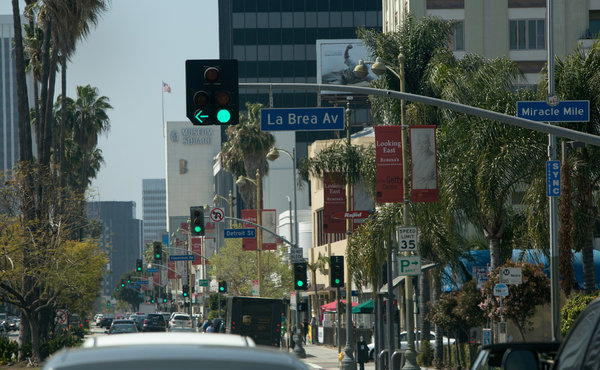 Simple example in a premier US city (#2 by pop, if I remember correctly), Los Angeles, which is famous for its bad traffic: LA now has all of its 4,500 traffic lights synchronized through a single software system. That combined with sensors monitoring traffic means the city can now start manipulating the lights to improve traffic flow:
Simple example in a premier US city (#2 by pop, if I remember correctly), Los Angeles, which is famous for its bad traffic: LA now has all of its 4,500 traffic lights synchronized through a single software system. That combined with sensors monitoring traffic means the city can now start manipulating the lights to improve traffic flow:
Now, the magnetic sensors in the road at every intersection send real-time updates about the traffic flow through fiber-optic cables t a bunker beneath downtown Los Angeles, where Edward Yu runs the network. The computer system, which runs software the city itself develoed, analyzes the data and automatically makes second-by-second adjustments, adapting to changing conditions and using a trove of past data to predict where traffic could snarl, all without human involvement.
Wikistrat has run simulations recently that involved looking at the future of urbanization and there have been a lot of fascinating entries exploring how Big Data will revolutionize urban management. This is a basic example but a crucial one, because few things can better scare off potential citizens than uncontrollable traffic problems - and yes, cities are always competing for talent.
 Thursday, April 4, 2013 at 9:32AM
Thursday, April 4, 2013 at 9:32AM Pre-emptively moving bulk of household goods to local storage.
 Wednesday, April 3, 2013 at 7:44AM
Wednesday, April 3, 2013 at 7:44AM 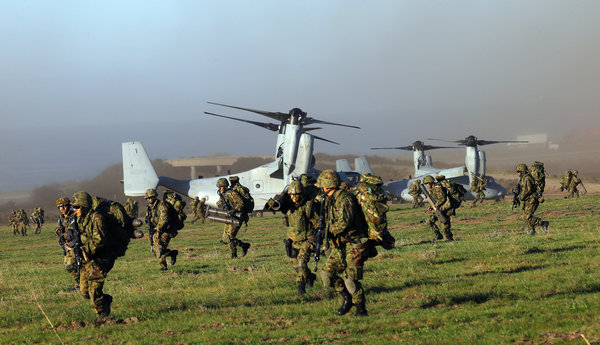
The easiest call of the last half-century: push Japan around enough and you'll get an end to its constitutionally-mandated pacifism.
Unlike Germany, which self-flagelated to the point of altering its social persona, Japan did no such thing. It simply buried the past, which it can now dig up with enough incentives from Beijing, which seems to have counted on the notion that it could push Tokyo around indefinitely.
No, this doesn't change my attitude on the "pivot" or AirSea Battle. In both cases, it proves how unnecessary they are as over-the-top reactions (yes, I understand the "show of force" part; I just worry that such things tend to be forgotten fairly quickly inside the Pentagon and thus today's feint equals tomorrow's "unshakeable national security interest").
The US enabled Asia's peaceful rise by playing Leviathan and thus obviating anyone's need to "arms race" with anyone else inside the region. The result being, for the first time in history, India, China, Korea and Japan all "risen" without any wars.
Beijing seems to have seen some historic advantage in this situation, which now disappears - inevitably. Thus, now is NOT the time for the US to "pour it on" but to play the honest-broker all the more.
 Tuesday, April 2, 2013 at 8:25AM
Tuesday, April 2, 2013 at 8:25AM 
Interesting USA Today story on how "Millennials are demanding capitalism with a conscience, and some of America's biggest brands are delivering."
I give a lot of speeches to middle-aged audiences (now borderline Boomers/Gen X like myself) and they express the usual concerns over the Millennials as the next to pick up the torch - so to speak.
So I talk about my oldest two and say most of the things stated in this article, so it was good to come across it and realize I wasn't unduly extrapolating from my kids:
This trend-setting, if not free-spending groupd of 95 million Americans, born from 1982 to 2004, live and breathe social media and are broadly convinced that doing the right thing isn't just vogue, but mandatory. With nearly a third of the population driving this trend, kindness is becoming the nation's newest currency.
It always amazes me how America raises the next generation that it needs.
 Monday, April 1, 2013 at 11:12AM
Monday, April 1, 2013 at 11:12AM 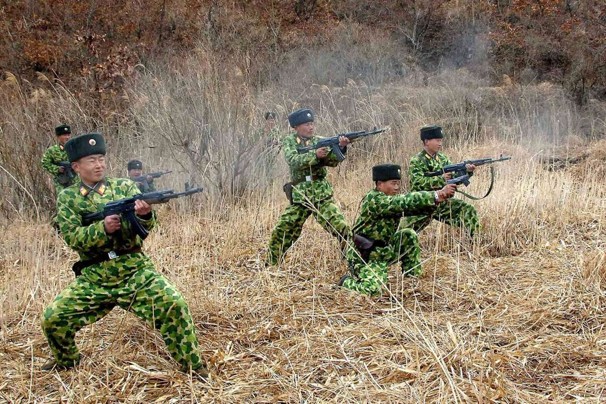 Good WAPO piece about the ratcheting up of brinksmanship by NorKo, which has gotten so aggressive as of late that SouKo pols are discussing the nuclear option - as in, get some.
Good WAPO piece about the ratcheting up of brinksmanship by NorKo, which has gotten so aggressive as of late that SouKo pols are discussing the nuclear option - as in, get some.
I was asked this last week in a speech in Nebraska (Lincoln), and my reply was, KJE has shown a distinct willingness to open things up internally, which is a very hopeful sign. But, as with anybody in his position, he needs to show a lot of external aggression to: 1) prove himself as the new leader and 2) show his internal reforms won't result in any loss of international "stature."
The problem is, of course, that the external aggression becomes self-fulfilling, which is why the hardliners always demand it as a form of reform-snuffing activity.
We don't know yet whether KJE has any real ambition to become a Deng-like transformative figure (China's dream). We can only go off the evidence to date. And that evidence says, playing with reforms but also playing with aggression.
It's easy to go overboard in either direction, but the instinct of an authoritarian state/leader is always to err on the side of external aggression, which is why totalitarian regimes of this nature are almost impossible to reform from within.
The good upside?
It gets Korea back on the front burner and gives a rest from the growing China-v-everyone dynamic. Plus it opens up the chance for cooperation with China on a shared burden.
But for now, it's the same old, same old with no clear path ahead.
 China,
China,  Koreas,
Koreas,  US foreign policy | in
US foreign policy | in  Citation Post |
Citation Post |  Email Article |
Email Article |  Permalink |
Permalink |  Print Article
Print Article  Thursday, March 28, 2013 at 8:17AM
Thursday, March 28, 2013 at 8:17AM FT story.
Comes right on the heels of recent talks with US to consider starting similar negotiations.
This is the West not waiting on the WTO, which is good.
It's also the West recognizing collective strengths, which is also good.
That's the funny thing about trade pacts - they tend to come when times are bad.
Because, when times are good, everyone's too picky and demanding. But when times are bad, and everyone assumes trade protectionism will rule, wiser heads prevail.
This is old-school globalization (1945-1980), and it's good to see that it's still capable of moving the ball forward.
 Wednesday, March 27, 2013 at 12:46AM
Wednesday, March 27, 2013 at 12:46AM  Nice piece by Roula Khala in the FT on the unfolding crisis that is Egypt’s economy. To no one’s surprise, the Muslim Brotherhood has proven rather inept at economic management – much less reform. One can hope that the learning curve, while steep, is rapidly surmounted, but there’s always the temptation of long, out-of-power revolutionary types to imagine that “now is our time to prove there is an [INSERT NATIONALITY HERE] way of doing things!”
Nice piece by Roula Khala in the FT on the unfolding crisis that is Egypt’s economy. To no one’s surprise, the Muslim Brotherhood has proven rather inept at economic management – much less reform. One can hope that the learning curve, while steep, is rapidly surmounted, but there’s always the temptation of long, out-of-power revolutionary types to imagine that “now is our time to prove there is an [INSERT NATIONALITY HERE] way of doing things!”
Over time, genuine economic development forces convergence: there are a few models out there (centralized socialism, oligarchic capitalism, state-run capitalism, big-firm capitalism and entrepreneurial capitalism) and there are pathways from one to the other (e.g., Russia from centralized socialism to oligarchic capitalism, China from centralized socialism to state-run capitalism, Japan from state-run capitalism to big-firm capitalism, Singapore from state-run capitalism to entrepreneurial capitalism, America from big-firm capitalism to a hybrid of that + entrepreneurial capitalism (i.e., industry sectors dominated by a handful of go-to-market options, surrounded by a sea of entrepreneurial small firms)). But everyone ends up running the same pathways – to wit, state-run China dreams of achieving its own Goldilock-style mature capitalism by “going global” in the direction of big-firm capitalism, pursuing “indigenous innovation” in the direction of entrepreneurial capitalism, and splitting the difference with domestic-led consumption (basically, the US model).
So no, there isn’t anything new under the sun; there’s just the same old game of hopscotch.
The fundamental flaw of the MB in power to date, according to Khalaf:
Mr Morse, an Islamist, has yet to understand that politics and the economy cannot be managed separately. A lack of political consensus is destroying his chances of taking difficult austerity measures, including cutting a costly subsidies bill and raising taxes, all of which are required by the IMF.
The IMF only matters here because of a $5B loan agreement on the table. Yes, Mr. Morsi can try to sell Egypt to China for a similar amount, but there he might find that the new neo-colonialism practiced by Beijing (you sell us raw materials and we sell you finished goods) isn’t the great liberation it’s made out to be for a country with such massive underemployment (and no serious material wealth). It’s hard to follow the China model unless you’re China, which means it’s not really a model at all.
Khalaf preaches an IMF programme (oops, went Brit there for a few strokes) “accompanied by substantial funding from an international support group made up of Western powers and Middle East oil states.
Me? I would hope Egypt might split the difference and go for a bigger international support group that includes rising Eastern economies. Because if it’s just the West and oil-rich sheikhs making demands, that gives Morsi the ideological “out” of resistance. So including China and India et al. in such things would be a nice way of evening out the demands, the message, and sense of us-against-them.
 Tuesday, March 26, 2013 at 12:01AM
Tuesday, March 26, 2013 at 12:01AM  One of the ways in which China starts getting blamed for all things globalization is the direct impact its consumers can have on global markets - sending them soaring and crashing in a historical heartbeat.
One of the ways in which China starts getting blamed for all things globalization is the direct impact its consumers can have on global markets - sending them soaring and crashing in a historical heartbeat.
I've talked about China's incredible hunger for various nuts in the past, and how that demand has fundamentally reshaped ag markets in the US.
This NYT story discusses how fishermen off the coast of Mexico are ignoring governmental attempts to preserve an overfished area for sea cucumbers. Out-of-area guys are slipping into zones being vigilantly guarded by locals and pulling out hauls right under their noses. This creates a "wild west" atmosphere were towns square off against towns over their precious slices of the pie and every stranger is treated like a would-be criminal.
Until China emerged in its middle-class glory, they wasn't much of a demand, as sea cucumbers aren't really eaten by Mexicans. But now the demand is such that one guy poaching can claim $700 a day in profit.
So this section of Mexico's coastline is in uproar . . . because Chinese like their sea cucumbers.
There will come a time - soon enough, when virtually everyone in the world who isn't Chinese will be living some version of this story.
A while back, America played that role, and while everyone wanted to please that American consumer, the dynamic created a lot of antipathy too.
And that is what's coming toward China at high speed.
 China,
China,  Mexico,
Mexico,  US,
US,  development,
development,  globalization | in
globalization | in  Citation Post |
Citation Post |  Email Article |
Email Article |  Permalink |
Permalink |  Print Article
Print Article  Monday, March 25, 2013 at 12:35PM
Monday, March 25, 2013 at 12:35PM 
Cartoon found here (in an FT op-ed that fits this post nicely - if orthogonally).
Read through a variety of the tenth-year anniversary reviews, and I thought Thomas Friedman's was the best - despite the weird title (Democrats, Dragons or Drones?).
His basic notion that it takes the next generation to create and shape the subsequent reality is correct. Friedman pegs it at "9 months and 21 years to develop."
Fair enough. But the question (as he also notes) hinges on that generation's journey. Done well, it works. Done badly enough and a vicious spiral ensues. In truth, the jury remains out on that score.
We won the war - no doubt, and then took a pass on the postwar. If we hadn't, then questions of "why?" fade away. In the post-9/11 mood, America possessed the desire to reshape the region and Saddam was the obvious target. Direct causality was not the issue, although Dick Cheney tried to sell that. Nor was direct threat, referring to the late and frantic oversell of the WMD to Congress. The purpose - all along - was structural retribution: as in, you reshaped our world, now we reshape yours. Americans are just deeply uncomfortable admitting that, so we needed a clear and present storyline to drive our revenge-flick dynamics.
The resulting strategic "pre-emption" was oddly symmetrical in ambition but certainly not in cost (and why should it be so between a superpower and a non-state actor?).
So when we take that pass on the aftermath of the war, and basically pretend that what comes next doesn't really matter, we abort the entire regional restructuring ambition (which, if you remember, was on a nice roll for 2-3 years there) and we allow ourselves to be swallowed up (in terms of strategic effort and attention) by an insurgency that was completely foreseeable and completely manageable - if we had bothered to embrace that inevitability.
But instead of embracing it, we did what we always do and called the postwar another war. And wars yield a singular answer in US military history - called, more firepower. And then we found that made things worse (go figure).
And then the White House, chastened finally by the 2006 midterms, relabeled the conflict and rebranded the mission - and then we succeeded again.
But by then the public narrative had already been cast (Bush lied, too many deaths, too much cost).
So ultimately the Bush administration pays the legacy cost for its mistakes, which mostly had to do with stubbornness. They had their narrative of a successful war and stuck to it - until it hurt so bad that they had to change.
So what are we left with?
In structural terms, I like what the Middle East has become. The inevitabilities are being processed and Iran is more isolated than ever. And thanks to larger structural changes in the global economy, the area is coming under new superpower management - inexorably. None of it is nice, but it was never going to be anything but painful and violent. The Arab world has an enormous amount of catching up to do WRT globalization, and it will be awful in execution (and with Africa leaping ahead on many fronts, the Middle East and North Africa - or large portions of it - risk becoming globalization's long-term basket case).
If the US had handed off the region still encased in its many dictatorships, China would have a much easier time over the next two decades. Now, it faces challenges that are likely to alter its own political structure significantly - just like it did to the US. Some naturally see the "defeat of American empire" in the region, but since empire was never America's goal, that judgment is meaningless.
All that matters is the relative evolutions of the three superpowers of the 21st century: China, India and America.
America did, per my original Esquire piece, take strategic ownership of the Middle East in a big way. That ambition was both debilitating and liberating: we took our shot (badly) and now we're done "owning" things there (besides Iran's nukes). In that way, Iraq processed our inevitable post-9/11 over-reaching response (we are a democracy) and hurried us along the exhaustion-collapse-rock bottom-recovery-resurrection dynamic that was always slated for us in the post-Cold War world (our inability to handle the success of the "end of history" - aka, the globalization of our economic connectivity model). We had gotten used to running things, and we weren't going to stop until something made us stop - an unpleasant journey but a necesssary one.
Now, in grand structural terms, the race among my C-I-A trio is well underway. The Obama administration, needing a switch-over target, sells its Asian pivot. This is not a good answer, as I have noted frequently - but rather a red herring. The real struggle in Asia doesn't involve us except in an off-shore balancing role.
Instead, the real struggles of the future involve the very same frontier integration I've been talking about for a decade now. On that score, we are looking fine enough in our ongoing restructuring of our portfolio, while China's grows frighteningly larger relative to its ability to deliver and manage regions distant from its shores. India is just begining to recognize what responsibilities lie ahead.
You'll say that China will do it differently, but the structure of the system will force the same responses: China cannot afford to lose its growing overseas dependencies (much greater than any borne by the US), and so the responses will be mounted. And when they don't go well (whoever gets it right - right off the bat?), change will double back upon China - to its general benefit (along with the world's).
Iraq was always a means to an end (when in history has great power war ever been anything else?). During the real-time execution, it seems like everything - as does every war throughout history. But half a century later? It looks very different. It's a stepping stone for superpowers: some step up and some step down, some step away and some step in. None of it is exactly what it appears to be in the light of present-day reporting. Per Zhou Enlai's take on the French Revolution, we will be witnessing the downstream consequences across the century.
 China,
China,  India,
India,  Iraq,
Iraq,  Middle East,
Middle East,  US,
US,  globalization | in
globalization | in  Citation Post |
Citation Post |  Email Article |
Email Article |  Permalink |
Permalink |  Print Article
Print Article  Friday, March 22, 2013 at 8:50AM
Friday, March 22, 2013 at 8:50AM 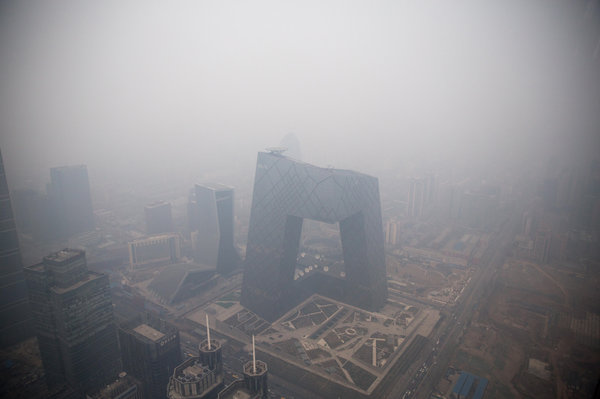
I love that building. Locals in Beijing have dubbed it the "squatting man" or some such (you get the idea), indicating that the Chinese sense of humor is as fine as anybody else's.
But patience wears thin on the subject of pollution, which is stunning to behold in China - as in, take my allergy issues in Indiana and times it by 10 in terms of the resulting agony.
Here we see the same fundamental failure of authoritarian rule that we saw in the Soviet Union: when the state has unbridled power, it trashes the environment. The Soviets took that sin to amazing depths, but the Chinese are rapidly closing in on those horrific standards.
And yes, democracy is the answer - the only answer. We bitch about the BANANAs and NIMBYs (look 'em up) in the US, but frankly, these cranks do God's work day-in and day-out - along with our legal system. Give me one Erin Brockovitch over a million Maos (or even a hundred Dengs) and we will all live in a much better world.
The strongest grass-roots democratization dynamics inside China involve the environment. Some of the best progressive elements within the US during our similar out-of-control developmental age (late 19th century) were likewise focused (and again, TR leads the way politically). It's the easiest and most direct trigger to the whole "I'm mad as hell and I'm not going to take it anymore" dynamic that fuels democratization. You simply push people too far with your incompetence and indifference.
Yes, the new generation of CCP leaders seems far more aware of the issue - Li Keqiang especially. But as the NYT front-pager today points out, that lofty talk doesn't surmount the bureaucratic infighting within the single-party state. Here is where the lack of an out-of-power party is crucial. No one can sweep in with an electoral mandate to clean things up - hence, nothing significant gets accomplished.
The great dynamic of America's Progressive Era was that parties won big and ruled big, whether they were Dems or Republicans. That's how stuff (new rules) got done and things improved dramatically.
That's also what we lack today with the evenly-and-deeply-divided Boomer-centric electorate - hence our deep need for reforms as well. But at least we have the system in place for when the electorate gets fed-up enought to force action.
China lacks this, and it's getting to be a huge hindrance to its further progress as a nation.
 Thursday, March 21, 2013 at 9:22AM
Thursday, March 21, 2013 at 9:22AM  NYT story on cyber attacks on two major SouKo banks - presumably by NorKo.
NYT story on cyber attacks on two major SouKo banks - presumably by NorKo.
I think this becomes the new brinksmanship/signaling in the digital age, meaning it's truly a virtual form of warfare and not a real warfare domain per se. It's easier and more clear than the usual diplo protests.
So we have this as a fifth vein of cyber (offensive/offending).
The five categories, in my mind, are:
What I don't see is cyber as a separate offensive warfare category - i.e., that and that alone as THE attack. You use as enabler in traditional attack, or its virtual warfare at best (remember that virtual means "not X").
That's why I don't find cyberwarfare so novel or weird or supremely trumping as some do. It's just a lot of old modalities updated and augmented - nothing more.
 Wednesday, March 20, 2013 at 9:32AM
Wednesday, March 20, 2013 at 9:32AM 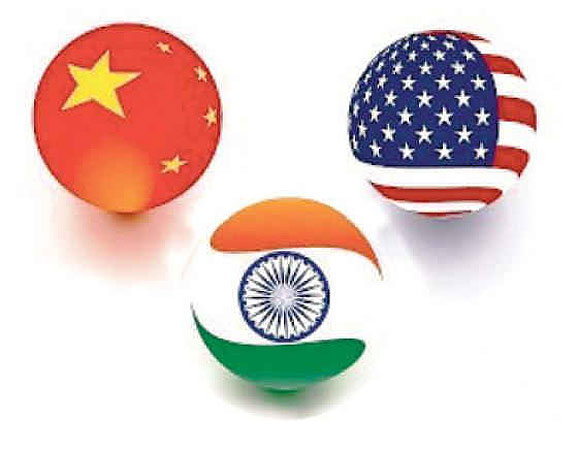
Eliot Cohen sounding very scared in the WSJ:
The arguments against far-flung American strategic commitments take many forms. So-called foreign policy realists, particularly in the academic world, believe that the competing interests of states tend automatically toward balance and require no statesmanlike action by the U.S. To them, the old language of force in international politics has become as obsolete as that of the "code duello," which regulated individual honor fights through the early 19th century. We hear that international institutions and agreements can replace national strength. It is also said—covertly but significantly—that the U.S. is too dumb and inept to play the role of security guarantor.
Perhaps the clever political scientists, complacent humanists, Spenglerian declinists, right and left neo-isolationists, and simple doubters that the U.S. can do anything right are correct. Perhaps the president should concentrate on nation-building at home while pressing abroad only for climate-change agreements, nuclear disarmament and an unfettered right to pick off bad guys (including Americans) as he sees fit.
But if history is any guide, foreign policy as a political-science field experiment or what-me-worryism will yield some ugly results. Syria is a harbinger of things to come. In that case, the dislocation, torture and death have first afflicted the locals. But it will not end there, as incidents on Syria's borders and rumors of the movement of chemical weapons suggest.
A world in which the U.S. abnegates its leadership will be a world of unrestricted self-help in which China sets the rules of politics and trade in Asia, mayhem and chaos is the order of the day in the Middle East, and timidity and appeasement paralyze the free European states. A world, in short, where the strong do what they will, the weak suffer what they must, and those with an option hurry up and get nuclear weapons.
Not a pleasant thought.
But the point I would make is, this time history isn't a guide.
During WWII, the US made the conscious decision to seek to remake the world in its rule-set image, and it succeeded beyond its wildest dreams in the phenomenon we now label globalization. That process was most definitely undergirded by a US security guarantee, which we generally provided to a wonderful degree with definite lapses in execution and - almost as importantly - explanation.
Now we live in a different world thanks to that world-reshaping effort. Plenty of European powers had their shot at this brass ring, and those eras all ended in large scale warfare and decimation of both conquered and conquering.
But notice how the world now enjoys more wealth-creation and order and peace than ever before in history. This is no coincidence. People will claim all sorts of meaningless variables (like the UN - a true laugher if ever there was one), but the reality remains: the US showed up, took charge, and we got this world.
But the success we experienced in this amazing venture (the greatest gift any power has ever given this planet and humanity) means we enter new territory. So no, history isn't any guide. What we do now in some measure of withdrawal is highly unlikely to unleash the tide of misery that Cohen predicts. We've simply incentivized too much of humanity in preserving this global system, meaning it is self-maintaining on many levels (easy to join and hard to upset, as they say).
So why do experts like Cohen keep putting it in such Manichean terms?
We got used to thinking of ourselves as the savior of the world, but that's a been there, done that dynamic now. We came, we saw, we rearranged the rules. Now the system does just fine on its own - for the most part.
Yes, put the world economy in extreme crisis like 2008 and Obama's role suddenly looms incredibly large. Honestly, I think he deserved the Nobel for that - simply doing his best to defeat the widespread expectation that the worst global economic crisis since the Great Depression would result in massive instability and warfare - none of which appeared (proving the realists antiquated yet again).
So what do we do now?
We learn to manage the world with the risers - plain and simple. They have the money and the need and the fear and the willingess to kill to protect their interests. In normal terms, those attributes = a genuine ally versus the free-loaders.
The two key players going forward are China and India. America needs to work that trilateral-global-order-in-the-making. Everything else is ancillary - remembering my recent admonitions that positive co-evolution on progressivism is the way to go on the transatlantic relationship.
But our experts and leaders still have light years to travel on such understanding. We still imagine it's our way or the WORLD OF CHAOS! This fear-mongering is, of course, rather silly.
But this is the state of strategic debate in the US.
 China,
China,  India,
India,  US foreign policy | in
US foreign policy | in  Citation Post |
Citation Post |  Email Article |
Email Article |  Permalink |
Permalink |  Print Article
Print Article  Tuesday, March 19, 2013 at 8:13AM
Tuesday, March 19, 2013 at 8:13AM 
On a walk last night and I was thinking about what I know about the future that I feel supremely confident about, and the answer that popped into my head is China's coming difficulties. Not that I wish it any harm - anything but. It's just that the hubris and the nationalism and the hunger for all things - all completely natural in a rise of this caliber - are combining to create antipathy abroad and extreme anxiousness at home. The tough times that follow will force China into a scary and dangerous democratization. It happens to the best; it happens to the rest. There is no Chinese "alternative."
Neat pair of NYT stories to illustrate.
First one (above) is about an Asian art exhibit. The paper version had the title that caught my eye:
East is East; West is Omnivorous
Exhibit covers the time period of Europe's early global expansion and the apocalyptic views it generated among the conquered in Asia.
The only thing I thought when I saw the title was, now the worm has turned. Now the West is West and the East is omnivorous. And that hunger for all things creates the growing hatred of China.
This has a been a prediction of mine since New Map: China becomes the face of globalization and thus the target of anti-globalization anger in all forms. I've been saying this in Beijing for almost a decade, and I don't get many takers. "We are different," I am told.
But they're not. The hunger is unbelievable (China adds ANOTHER 300m to its US-sized middle class in the next 6-7 years) and the hate is real and growing.
See Shambaugh's excellent NYT op-ed on global attitudes toward the Chinese: all downhill.
Meanwhile, the US is in its hibernation phase, and Obama is the perfect hibernation president. I'm not bitching. We asked and he delivers.
But the regeneration proceeds.
China, however, tops out on all sorts of things - signalling tougher times ahead. And this is not a system built for tough times. You may think authoritarianism is, but it ain't. No ability to "throw the bums out" = building hatred within the system (frustration that finds no relief).
Nothing I describe here happens tomorrow, and it's easy to dismiss.
But I know this with a certainty: Right now China is perceived to be passing the US and we find that scary. But between now and 2030 this all gets reversed in a big way, and that will be far more scary for both sides.
This is why we cannot abide the fear mongers on both sides; they are too dangerous for the world's future.
The outreach must be pursued and eventual partnership revealed - not out of our fear for them but to modulate what will become China's great fears of all things during the difficult times ahead.
 Monday, March 18, 2013 at 8:40AM
Monday, March 18, 2013 at 8:40AM And you might find yourself in a beautiful dynamic (Arab Spring), with a beautiful ally (French) ...
And you may ask yourself, How did I get here?
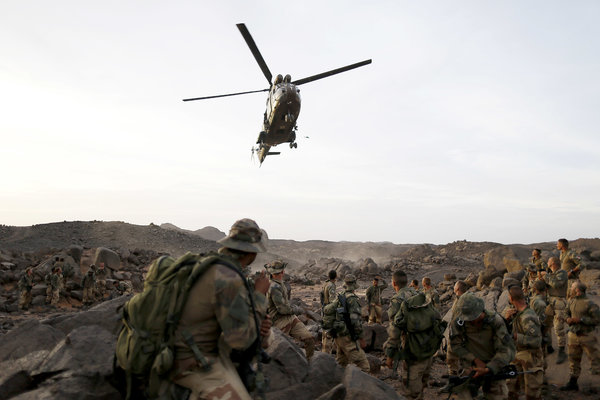
The French did God's work in Mali: cleared out the nutcases who went medieval on the north during their year of ruling dangerously.
But with the "clear" comes responsibility to "hold" (nay, even to "build") and now the locals naturally fear the return of the AQIM-affiliated types who imposed their version of 7th-century morality over the past year or so.
With France planning to start withdrawing its troops from Mali next month, Western and African officials are increasingly concerned that the African soldiers who will be relied on to continue the campaign against militants linked to Al Qaeda there do not have the training or equipment for the job.
The heaviest fighting so far, which has driven the militants out of the towns and cities of northeastern Mali, has been borne by French and Chadian forces, more or less alone. Those forces are now mostly conducting patrols in the north, while troops sent by Mali’s other regional allies, including Nigeria and Senegal, have been slow to arrive and have focused on peacekeeping rather than combat, prompting grumbles from Chad’s president, Idriss Déby Itno.
The outcome of the fighting in Mali carries major implications not only for France, but also for the Obama administration, which is worried that Al Qaeda in the Islamic Maghreb and other militant groups could retain a smaller but enduring haven in remote mountain redoubts in the Malian desert.
To help the French, the United States began flying unarmed surveillance drones over the region last month from a new base in Niger. And the administration has spent more than $550 million over the past four years to help train and equip West African armies to fight militants so that the Pentagon would not have to. But critics contend that the United States seems to have little to show for that effort.
Turning Mali’s own fractured army into a cohesive and effective force would entail “a huge amount of work,” according to Brig. Gen. Francois Lecointre of France, who is leading the effort to retrain Mali’s Army. As if to underscore the point, a group of Malian troops briefly abandoned their posts recently and fired shots in the air to demand a deployment bonus.
Here in the southeastern corner of Mauritania, about 100 miles from the border with Mali, an exercise conducted this month by the United States military to train African armies to foil ambushes, raid militant hide-outs and win over local populations offered the administration more reasons for worry, as well as some encouraging signs.
The exercise offered a rare glimpse into the strengths and weaknesses of several of the African armies that are poised to help take over the mission in Mali. In a few weeks, the United Nations Security Council is expected to decide whether to authorize a peacekeeping force for Mali and how to compose it.
France, we are told, will leave behind a small unit of headhunters - counter-terror personnel. And then there's always America's "limited regret" drones (the gun that's settling the Gap), but we all know that this is temporizing the situation (think back to Ignatius' latest lament on the lack of a SysAdmin-like force). This is why I continue to rail (per my recent piece in Foreign Policy) against retreating to renewed fantasies of great power war as a means of denying the strategic reality still lying out there.
We can most definitely choose to low-ball our responses to such events; we just don't need to blame it on the Chinese, who are - oddly enough - most incentivized to likewise deal with such enduring instabilities.
 Africa,
Africa,  China,
China,  Long War,
Long War,  US foreign policy | in
US foreign policy | in  Citation Post |
Citation Post |  Email Article |
Email Article |  Permalink |
Permalink |  Print Article
Print Article